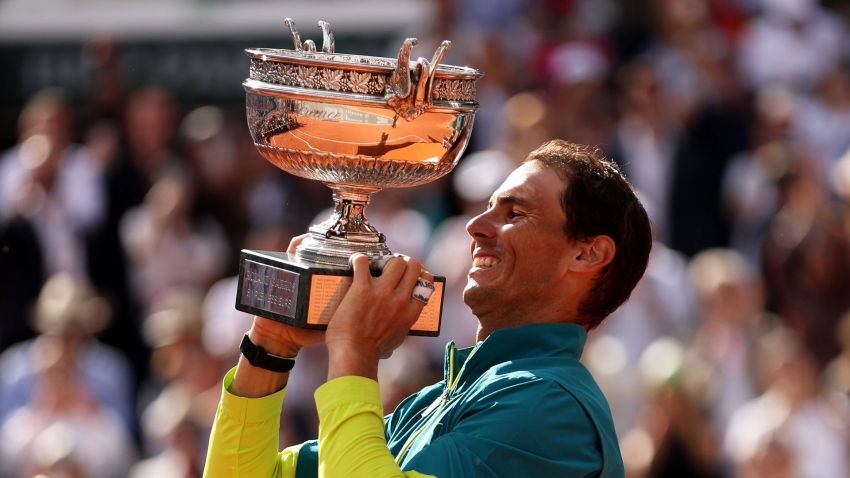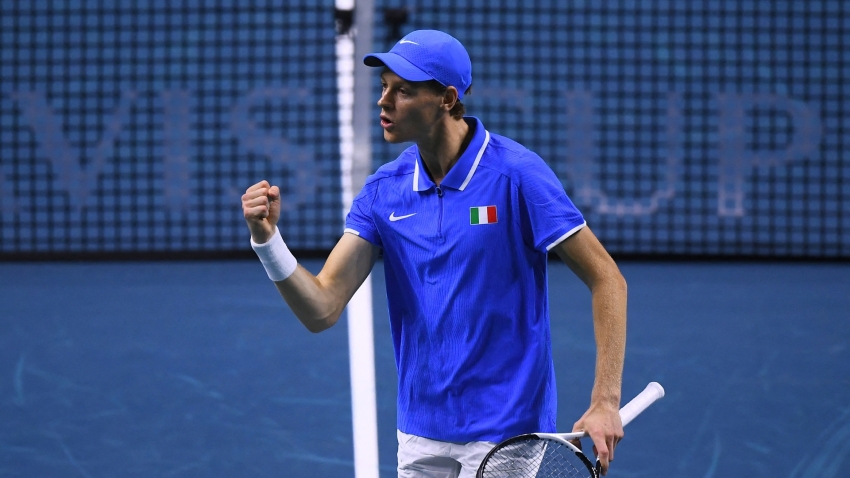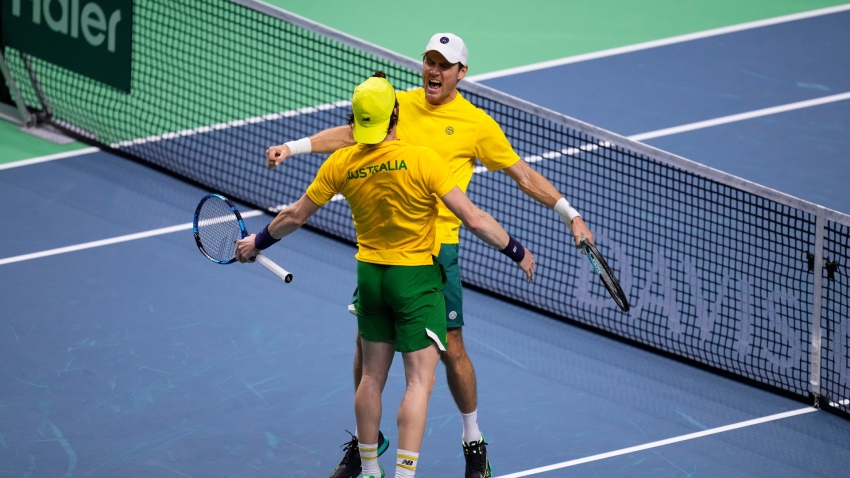Never meet your heroes. Casper Ruud was setting himself up for a fall when he described Rafael Nadal as "my idol for all my life" heading into Sunday's French Open final, and when that fall arrived it was spectacular.
Ruud versus Nadal on Court Philippe-Chatrier was a classic mismatch on paper, and on clay.
The fanboy stood no chance, swept away 6-3 6-3 6-0 as Nadal landed Roland Garros title number 14, an absurd feat of sporting staying power, becoming the oldest men's singles champion at the Paris grand slam, moving to 22 majors, two clear of Roger Federer and Novak Djokovic.
If Ruud needs a little consolation, the great Federer, at the peak of his powers, only took four games off Nadal in the 2008 final.
This is not the 2008 Nadal though. This is Nadal at 36 years and two days old, a player who needed a doctor at his side during the past fortnight to allow him to step on court.
Nadal has a foot problem that is said to be incurable, but thankfully it is treatable.
"We played with no feeling on the foot," Nadal told Eurosport. "We played with an injection on the nerve so that the foot was asleep, so that's why I was able to play."
While the foot was sleeping, the rest of Nadal's body was picking up the slack.
Ruud was six years old in 2005 when Nadal won his first French Open, and 17 years later he had the best view in Court Philippe-Chatrier of the Spaniard again in full flow.
This was his first match against Nadal, although they have often practiced together at the Spaniard's academy in Mallorca, where Ruud has done much of his learning. Here was another lesson.
Nadal loves a mid-afternoon match with the roof open, and a warm day in the French capital only enhanced his sense that the place was feeling like home.
He was on top without being masterful in the opening set, simply doing enough against the first Norwegian man to reach a slam final.
Trumpets blared Y Viva Espana when he wrapped that one up, then delivered a fanfare as Nadal strolled back onto court for the start of the second set.
He receives the first-class treatment in Paris, with the king of Spain, Felipe VI, on hand to witness the king of clay scale his latest career height.
There was perhaps brief concern for his royal highness when Ruud broke Nadal's serve early in the second set to eke out a 3-1 lead, but he needn't have worried.
Ruud won a 19-shot rally to earn three break points, and that was followed by a double fault from the favourite.
Nadal later called that game "a disaster", but he should probably let it go.
Armed with a 3-1 lead in that second set, it was imperative that Ruud should build on that.
He didn't win another game.
When Nadal swatted away a forehand to bring up a break point in the second game of the third set, he had Ruud right where he wanted him, and a vicious backhand out of the Norwegian's reach secured a seventh successive game.
Number eight followed, and then a ninth as the clean winners flowed from Nadal's racket. The winners and the games kept coming.
The contest had moved into mercy-killing territory. Make it quick Rafa, as painless as possible, don't drag it out.
When he fizzed a backhand down the line on match point, way out of Ruud's reach, it was all over. Two hours and 18 minutes was all it took. With a little less of his familiar between-points faffing, Nadal might have had it done inside two hours.
He lifted the Coupe des Mousquetaires with the gusto of a man who had never held it before, and that in itself spoke volumes for this achievement.
Nadal's Roland Garros record now shows 112 wins and just three defeats, and this was a 63rd title on clay – a 92nd title overall. What a career.
Andres Gimeno, also from Spain, was 34 years, 10 months and one day old when he captured the 1972 French Open title, and until Sunday he was the oldest men's champion at this event.
Nadal spoke afterwards of his determination to keep playing, keep "fighting". He wants to wring every last ounce of strength from a body that is letting him know that retirement cannot be far away, and he is getting incredible bang for his buck just now.
Which is why we can now look at Wimbledon, and pose the question: can he do this again on grass?
And if at this point you are thinking, 'surely not', just remember what he has achieved in Melbourne and now in Paris this year, and ask yourself instead: why ever not?































